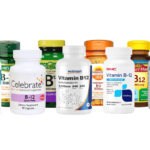Is High Dose Vitamin C For Constipation Safe To Take?

Constipation is a condition in which you may have fewer than three bowel movements a week; stools that are hard, dry, or lumpy; stools that are difficult or painful to pass; or a feeling that not all stool has passed.
About 4 million people in the United States have frequent constipation. Constipation is the most common gastrointestinal complaint, resulting in 2.5 million doctor visits annually.
Some of the most common causes of constipation include the following:
- Abuse of laxatives
- Changes in habits or lifestyle, such as travel, pregnancy, and old age
- Ignoring the urge to have a bowel movement
- Irritable bowel syndrome
- Lack of exercise
- Medications
- Not enough fiber in the diet
- Not enough liquids
- Problems with intestinal function
The good news is that you can take steps to prevent or relieve constipation.
What is Vitamin C?
Vitamin C (ascorbic acid) is a nutrient your body needs to form blood vessels, cartilage, muscle, and collagen in bones. Vitamin C is also vital to your body’s healing process.
Because your body doesn’t produce Vitamin C, you need to get it from your diet. Vitamin C is found in citrus fruits, berries, potatoes, tomatoes, peppers, cabbage, Brussels sprouts, broccoli, and spinach. Vitamin C is also available as an oral supplement, typically in the form of capsules and chewable tablets.
Vitamin C is an antioxidant that helps protect your cells against the effects of free radicals — molecules produced when your body breaks down food or is exposed to tobacco smoke and radiation from the sun, X-rays, or other sources. Free radicals might play a role in heart disease, cancer, and other diseases. Vitamin C also helps your body absorb and store iron.
Vitamin C is a water-soluble vitamin. This means that it dissolves in water and is delivered to the body’s tissues but is not well stored, so it must be taken daily through food or supplements.
Does Vitamin C help with constipation?
Yes, Vitamin C helps with constipation especially when it is related to passing hard stool. Without enough Vitamin C in your body, hydrochloric acid production is reduced, leaving you with poor digestion symptoms including burping, farting, and heartburn. By simply getting enough Vitamin C, you can improve your digestion and relieve constipation.
A Vitamin C flush also known as ascorbate cleanse can also help rid your body of toxins. Advocates of the practice recommend introducing high amounts of Vitamin C into your diet at regular intervals until you produce watery stool.
Is high dose Vitamin C for constipation safe?
Yes, taking a high dose of Vitamin C for constipation is safe but it can trigger a powerful laxative effect especially when you consume doses of between 1500 – 2,000 milligrams. This is characterized by a sudden release of loose stool once you’ve fully saturated your body with Vitamin C, so plan on being near a toilet. Most people prefer doing this in the daytime and in the comfort of home for the first time.
Another common side effect of Vitamin C mega dose intake is digestive distress. Symptoms include stomach pain, heartburn, diarrhea, constipation, nausea, and vomiting. In general, these side effects do not occur from eating foods that contain Vitamin C, but rather from taking the vitamin in supplement form.
Recommended Amounts
• RDA: The Recommended Dietary Allowance for adults 19 years and older is 90 mg daily for men and 75 mg for women. For pregnancy and lactation, the amount increases to 85 mg and 120 mg daily, respectively. Smoking can deplete vitamin C levels in the body, so an additional 35 mg beyond the RDA is suggested for smokers.
• UL: The Tolerable Upper Intake Level is the maximum daily intake unlikely to cause harmful effects on health. The UL for vitamin C is 2000 mg daily; taking beyond this amount may promote gastrointestinal distress and diarrhea. Only in specific scenarios, such as under medical supervision or in controlled clinical trials, amounts higher than the UL are sometimes used.
Other good remedies for constipation
Water and Fluids
If you are constipated, drinking enough fluids can provide relief. It can help move food through your digestive system and stop stool from hardening.
In general, you should aim to drink about nine cups of liquid a day if you’re a woman and 13 cups if you’re a man. If you’re constipated or taking fiber supplements, you may need to drink more. Ask your doctor for guidance.
Though water is an ideal choice, don’t discount the benefits of other beverages. Green tea, black tea, coffee, and other drinks can all count towards your daily fluid intake.
Regular Exercise
You might not feel like taking a trip to the gym when you’re backed up, but exercise may provide the relief you need. Going for a walk or run, for example, can help stimulate the muscles in your intestines and colon. Any physical movement helps the bowels move things through.
To help prevent and relieve constipation, make exercise a regular part of your routine. Aim for at least 150 minutes of moderate aerobic activity per week. That’s equivalent to 30 minutes of aerobic exercise per day, five days a week. If that seems like too much for you, set a smaller goal to start. Try to get some physical activity every day to stay regular.
Eating high-fiber foods
Getting enough fiber in your diet is crucial. There are two main types of fiber: soluble fiber soaks up water, which helps keep your stool soft; insoluble fiber adds bulk to your stool, which helps it move through your digestive system faster.
To help treat mild cases of constipation, try eating easy-to-digest foods that are high in fiber, such as berries, bananas, prunes, or avocado. To prevent future problems, include plenty of fiber-rich foods in your diet, including vegetables, fruits, and whole grains. You may also benefit from a daily fiber supplement, such as psyllium husk (Metamucil).
When these trusted home remedies do not work, a person can speak to a doctor or pharmacist about choosing an appropriate laxative. Different types have varying methods of action, but all are effective for constipation.
A doctor may recommend one of the following types:
• Bulking agents: These are fiber-based laxatives that increase the water content of stool.
• Stool softeners: These contain oils to soften stools and ease their passage through the gut.
• Stimulant laxatives: These stimulate the nerves in the gut to increase bowel movements.
• Osmotic laxatives: These soften stool by pulling water from the surrounding tissues into the digestive system.
However, people should not take most of these laxatives on a regular basis without speaking to a doctor.





